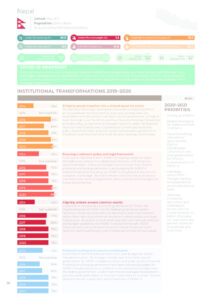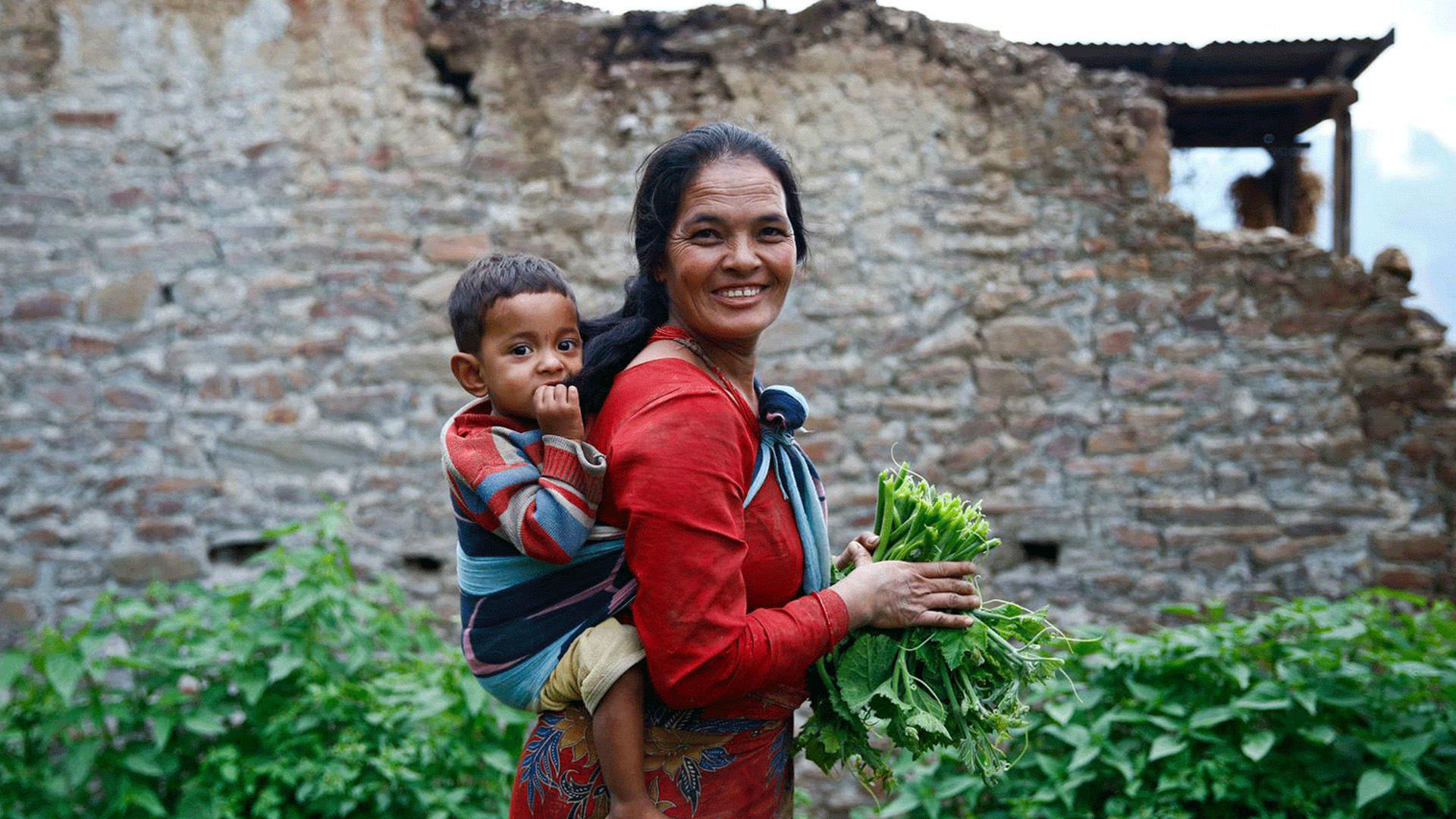Nutrition situation
Under five stunting (%)
36
Under five overweight (%)
1.2
Anaemia in women 15-49 years (%)
35.1
Under five wasting (%)
9.6
Low birth weight (%)
21.8
0 to 5-month-old exclusive breastfeeding (%)
65.2
Adolescent overweight (%)
Male: 6.6
/ Female: 7.3
Adult overweight (%)
Male: 19.1
/ Female: 22.8
Adult obesity (%)
Male: 2.7
/ Female: 5.4
Adult diabetes (%)
Male: 11.7
/ Female: 9.5
COVID-19 snapshot
The functionality of the multi-stakeholder platforms (MSP) was strengthened as a result of the COVID-19 crisis. There is stronger coordination and collaboration to respond to the impact of COVID-19 on health, nutrition, food security & socioeconomic components. The nutrition cluster is active and partners are focusing on the Blanket Supplementary Feeding Programme.
Institutional transformations 2019-2020
Bringing people together into a shared space for action
The National Planning Commission has been coordinating MSPs at national level. Nutrition and food security architectures are established and functional at all three tiers of government. At federal level, the High-Level Nutrition and Food Security Steering Committee provides policy guidance and manages resource, while the National Nutrition and Food Security Coordination Committee facilitates policy implementation, progress review and provides guidelines to Provincial Level Nutrition and Food Security Steering Committees.Ensuring a coherent policy and legal framework
Multi-Sector Nutrition Plan II (MSNP-II) is being implemented in the federated context in a collaborative manner with all sectors and stakeholders. Policy and budget commitment from federal, provincial and local government is encouraging for MSNP-II implementation and scaling-up. MSNP is integrated in the annual workplan and budget. Nutrition-related international and national commitments, sectoral legislations, plans, policies and strategies are being implemented.Aligning actions around common results
Government developed a national guideline in 2017/18 for the implementation of MSNP-II in the federal governance system. Nutrition-related sectoral plans are developed and implemented across three tiers of government based on national policy and legal frameworks. All sectors at each level have their own annual workplan and budget guided by the MSNP-II results framework. MSNPII interventions are in all seven provinces where Provincial Level Nutrition and Food Security Committees are formed and activated.Financial tracking and resource mobilisation
Government committed to provide multi-year budget for MSNPII implementation. The budget contribution from three tiers of government for MSNP-II implementation and scale-up has increased. Provincial and local governments have been allocating budget for MSNP-II implementation in addition to the earmarked budget from the federal government. Government has encouraged development partners and stakeholders to increase investment in nutrition. Donors and partners are supporting implementation of MSNP-II.2020-2021 Priorities
- Scaling up MSNP-II.
- Budget leveraging for implementation of MSNP-II.
- Capacity building of provincial governments, District Coordination Committees and local governments for effective implementation of MSNP-II.
- Creating a vibrant MSP through capacity enhancement at provincial and local levels.
- Advocacy in resource generation and mobilisation for the effective implementation of MSNP-II focusing on “Leaving no one behind” especially at provincial and local levels.
Download

